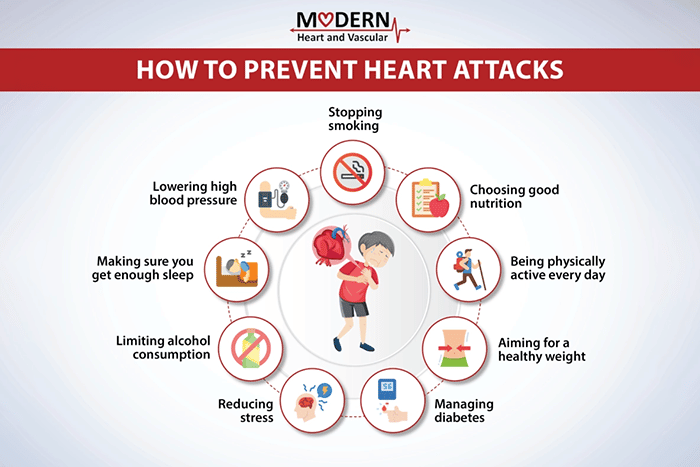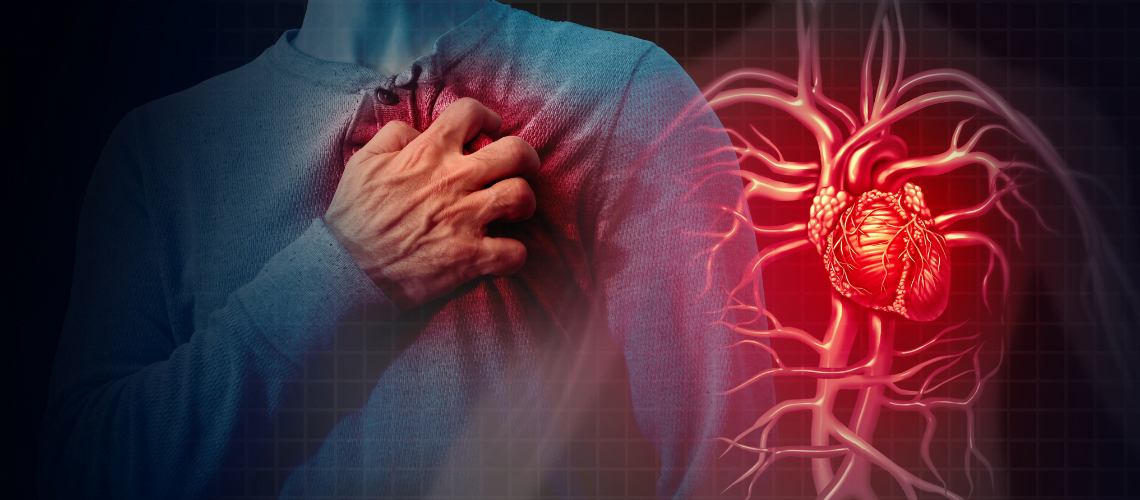By Charalampos Karouzos,
In the previous part, we have been introduced to the presentation of how to treat a heart attack before it happens.
Nevertheless, an acute cardiac event is not a spontaneously occurring disease that targets individuals randomly. Numerous scientific studies have established that the basis of such an event lies in two main pillars. Initially, there is a predisposition to developing such conditions attributed to genetic factors that vary among individuals. The risk is attributed to the presence of genetic alterations inherited by one’s parents that cannot be changed and thus must be identified and assessed during either birth in severe cases or during a yearly appointment with one’s family doctor. For most, the risk is not significant and only minimal changes in lifestyle may be required, but nonetheless prevention of the onset of a heart attack is more effective than treating one.
On the contrary, the greater risk of developing an acute heart attack is not only reversible but is completely preventable with lifestyle modifications. It may be incorporated as tedious and monotonous, but data unquestionably support that certain common everyday factors create a great burden on our cardiovascular health. It would be groundbreaking to identify a drug or several drugs that act as a panacea, reversing the effects of unhealthy diets, lack of exercise, smoking, obesity, stress, hypertension (high blood pressure), diabetes, alcohol, and other factors that collectively contribute to a greater risk of development of cardiovascular diseases. The public is aware of the above risks but fails to follow a lifestyle that minimizes, them as either their effect is underestimated or the societal status quo demands people to obtain a high-risk lifestyle, for example, high-paced lifestyles, sedentary work, social smoking, and alcohol consumption. While the above describes a great majority of the population, people and particularly younger generations are adopting healthier lifestyles seeking an alternative way of living based on long-term health.

It has been well established that coronary artery disease, the main driving factor for myocardial infarctions is a chronic condition that initiates from a very young age and, thus, taking steps to decelerate its progression should not be focused exclusively on older individuals. Healthy habits are formed from a very young age, addressing this issue, discussions are being held regarding the steps governments and society must collectively take to address current risks. Firstly, children at school should be taught about the value of quality food and what to avoid in maintaining a balanced diet, while at the same time being made available to purchase food at school that meets these targets. In addition, implementing simple exercises like walking or biking daily not only as a form of exercise but as a means of commuting is the foundation for a more active everyday life in the future.
Furthermore, policymakers must assess the ability of current infrastructure to support the goals of establishing a society-wide decreased risk. Increasing the availability of green spaces along with sidewalks and bike lanes in our modern cities is a fundamental first step that must be made to decrease the usage of cars that apart from increasing pollution are directly linked with higher levels of stress and inactivity. In addition, although controversial, increasing the taxes on non-essential high-risk products including alcohol, cigarettes, and fat-heavy foods; would prevent people from overconsumption. However, restricting the causative agent of heart attacks would be unbeneficial if healthier alternatives and awareness are not globally promoted.
Further, establishing a health system that focuses on minimizing preventable cardiovascular diseases would be of great benefit to patients and the economy. Access to screening and effective treatment of the primary stages of developing cardiovascular disease must be reassessed to adapt to the lifestyle of the modern human. Medical personnel should not be restricted to an outdated and strict prevention plan that does not address the issues and needs of the 21st century and, thus, adhere to the plan as they are required by the system. Prevention of heart attacks in a large-scale environment could be beneficial if the currently available guidelines are followed and at the same time adapted to each individual, achieving a more personalized prevention approach.
In addition, data have revealed that preventing the onset of the disease is significantly more economically beneficial as there is no need for emergency hospitalization, expensive surgical intervention, and work hours loss. Investing in health and, specifically, investing in cardiovascular disease prevention, would be a great benefit for society as the limited available sources will be distributed in a more effective way of treating people – and most importantly – there will be less suffering and more quality life years available.

To conclude, heart disease is the leading cause of death globally with 17.9 deaths annually, a number that according to the WHO could be reduced by 80% if simple prevention measures were to be implemented. The very low effectiveness of prevention can be attributed to various aspects of our complicated societal organization, but ultimately each person ought to look after their own well-being and, thus, take the necessary steps to achieve a healthier lifestyle. Some may feel overwhelmed and even confused about the changes in their lifestyles that must be performed and here lies the role of the primary health providers, discussing such issues with your personal doctor would be of great benefit.
References
- Cardiovascular diseases. who.int. Available here
-
Treating a heart attack before it happens: It may not be science fiction. medicalnewstoday.com. Available here




